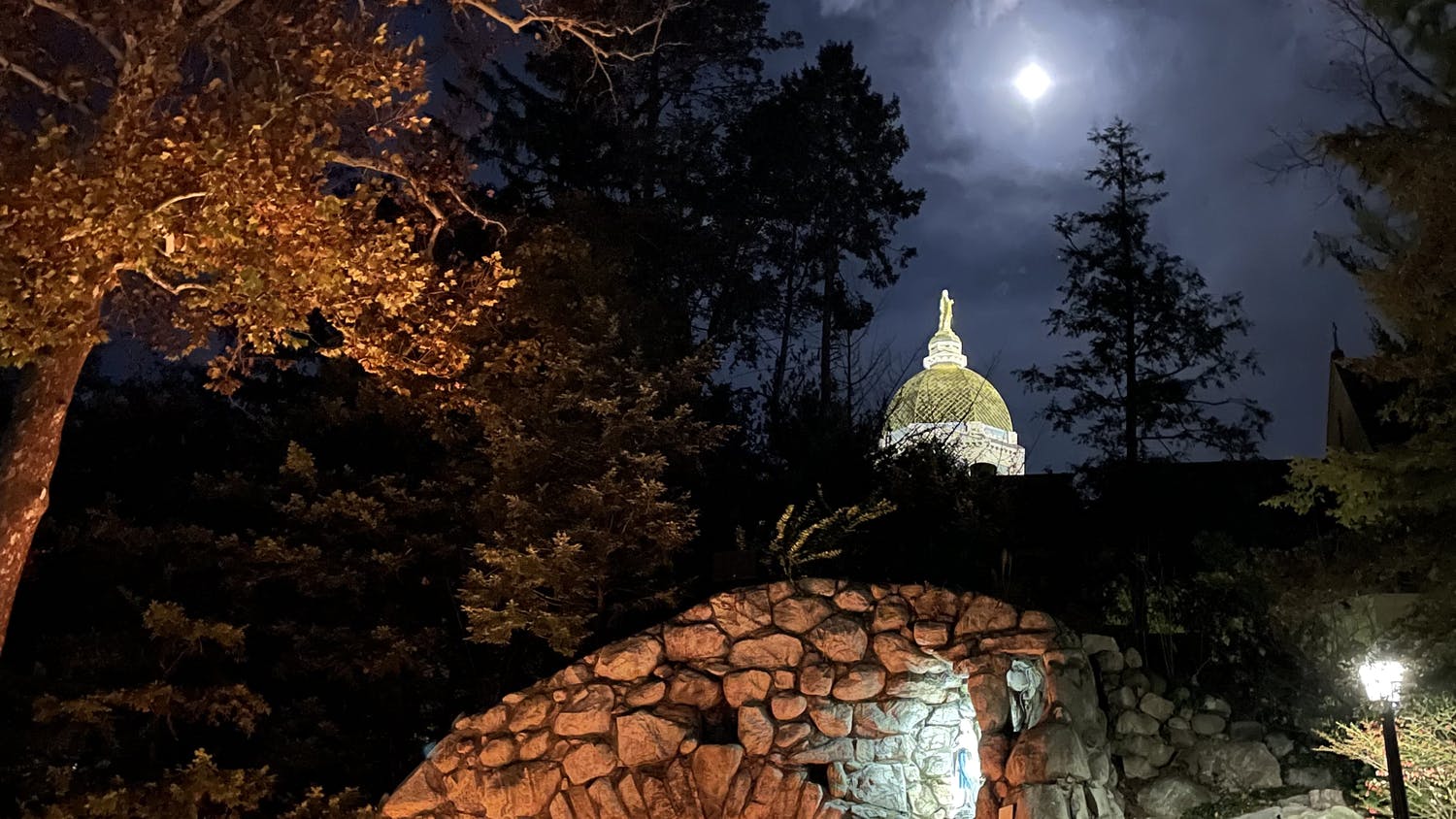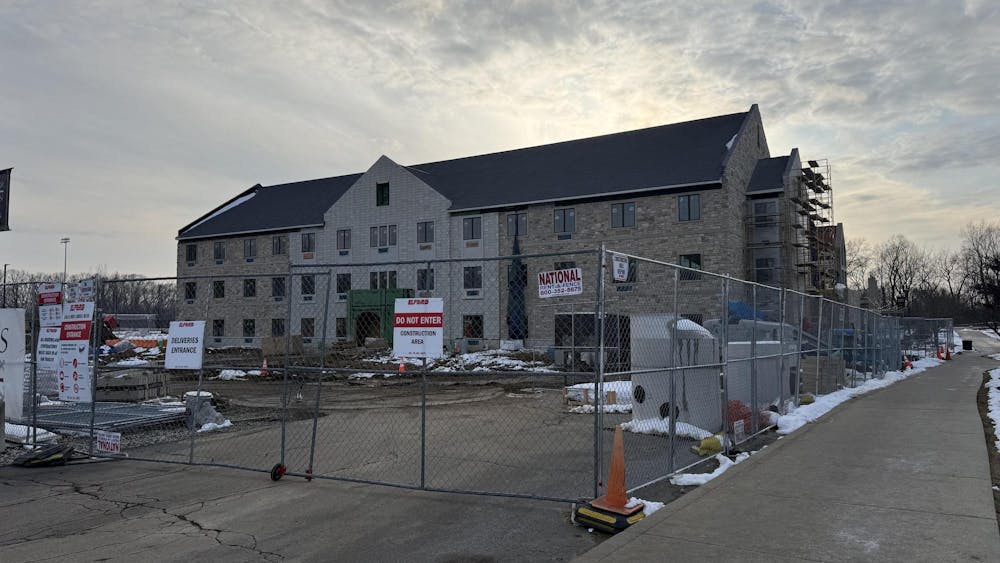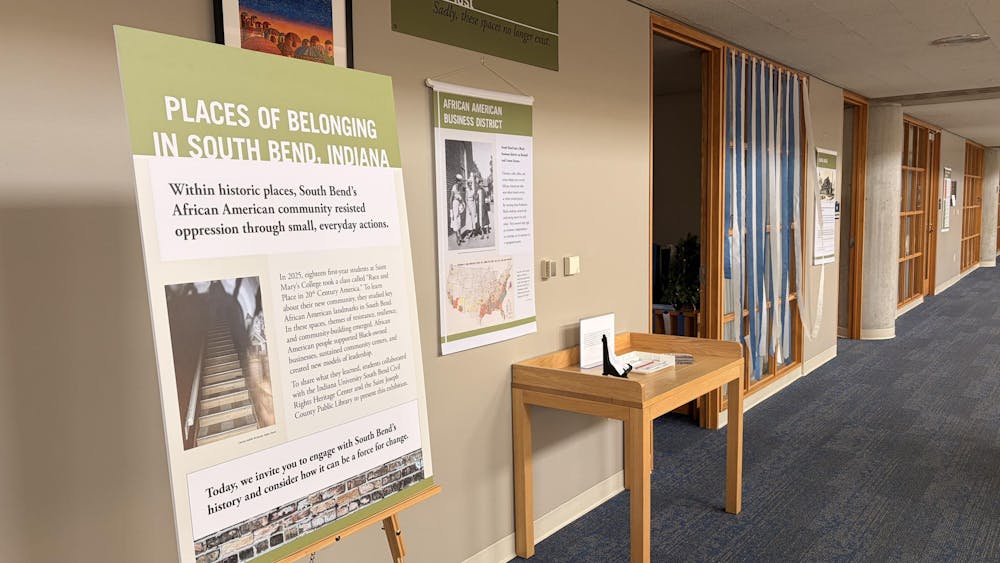(Editor’s note: Ziegler is a Viewpoint columnist for The Observer).
Last week, the Jewish Club of Notre Dame hosted the second annual Antisemitism Awareness Week. The event is an effort to educate the campus about Judaism and combat misconceptions about Jewish culture that can potentially evolve into antisemitism, Jewish Club co-president Blake Ziegler said.
The week consisted of events designed to inform students of any faith background about Judaism, allow Jewish students to celebrate their faith and raise awareness about antisemitism on campus.
Ziegler said raising awareness of antisemitism is especially important at Notre Dame, which historically has a small number of Jewish students.
“The Jewish Club firmly believes that, especially on a campus like Notre Dame where students tend to not really have much exposure to Jews or Judaism, education is the best way to combat ... misperceptions about Judaism,” Ziegler said.
The first event of the week was a lecture last Monday by Sarah van Loon from the American Jewish Committee. Van Loon discussed the state of antisemitism in the U.S, referencing the agency’s annual survey. Van Loon highlighted the survey’s finding that 90% of American Jews find antisemitism to be either a serious problem or somewhat of a problem yet that number lowers to 60% for the general public, Ziegler said.
The club also hosted a panel featuring students and faculty. During the panel, students asked questions to the panel members about what life is like for members of the Jewish community at Notre Dame.
Graduate student Karla Gonzalez-Serrano said the panel provided a valuable discussion among students and faculty, bringing to light ways the campus can be more inclusive for Jewish students. These ideas included allowing students to time exams so they do not conflict with fasting and providing more kosher dining options at University events.
Though a Catholic, Gonzalez-Serrano said she has enjoyed participating in the Jewish Club during the past year because it has allowed her to learn about another culture and help build a sense of interfaith community.
“We’re praying to the same God, so it definitely feels like an enriching spiritual practice for me,” she said.
Other events included a Holocaust prayer service on Wednesday, bystander training for microaggressions and an information session on the club’s efforts to push the University to adopt an official definition of antisemitism.
On Thursday, the Anti-Defamation League (ADL) spoke about what they define as the difference between legitimate criticism of Israel and antisemitic criticism of Israel. The Jewish Club has a policy that they do not comment on the Israel-Palestine conflict unless they are discussing the spiritual connection between Jews and Israel or addressing antisemitic criticism of Israel, Ziegler said.
“We brought in the ADL to come and speak on that to try to educate the community about navigating that kind of discourse because we do want to allow people to be able to criticize Israel and to have that open discussion because we should all be able to criticize democracies,” he said. “But we do want to recognize that there is a line that can be crossed, and we don’t want to cross that line.”
The week concluded with the club’s biweekly Shabbat celebration, though with a special focus on antisemitism awareness and interfaith dialogue. Ziegler said many students on campus have little exposure to Judaism, so he hopes the Jewish Club can help educate students of all faiths.
“Ignorance is what breeds antisemitism in the first place, [a] lack of understanding these situations,” he said. “And so we wanted to educate the community to make them aware about those situations and how certain things can be perceived as antisemitic and are antisemitic even if it's not direct physical violence against someone.”
Read More
Trending









